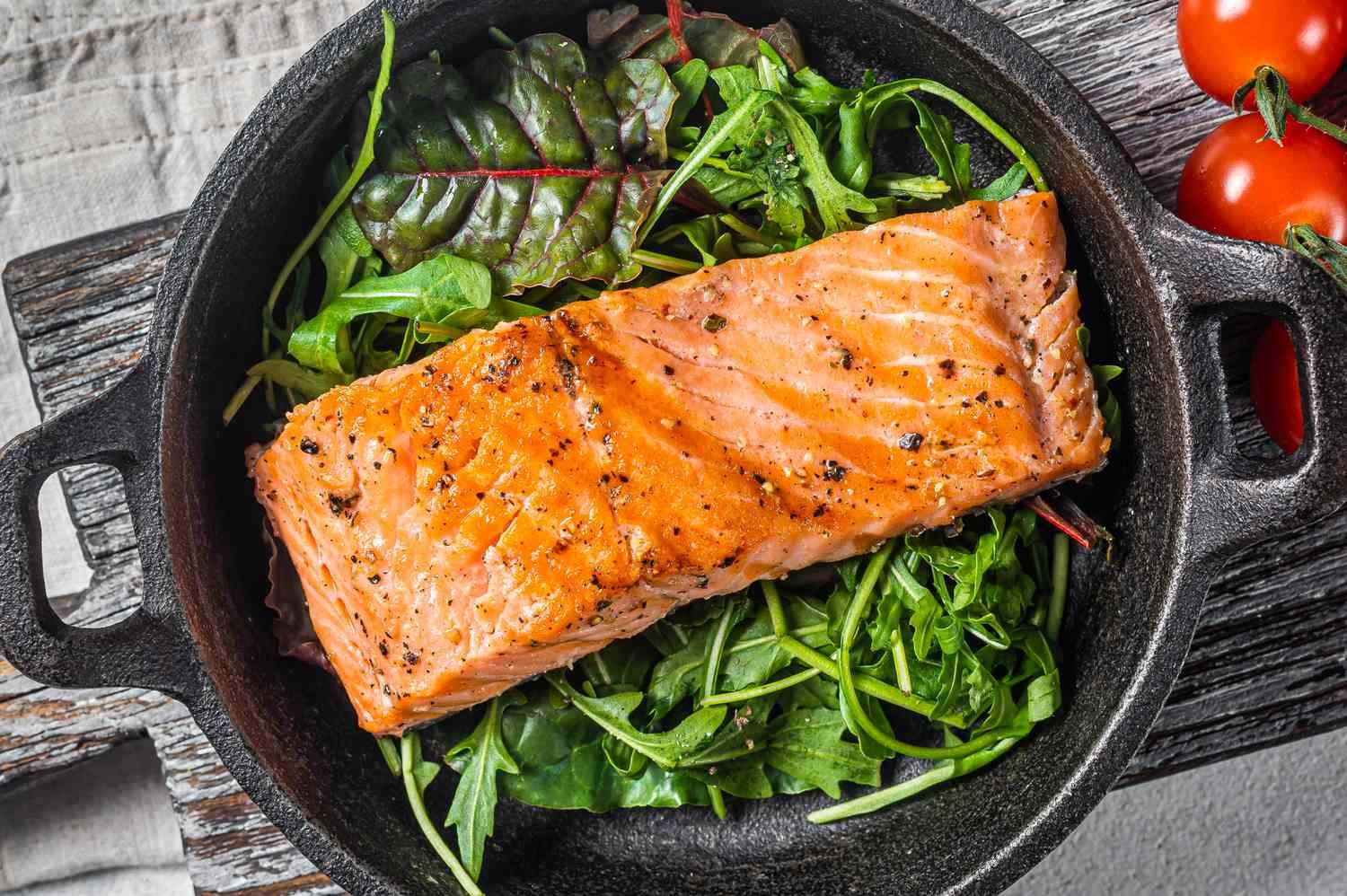Key takeaways
- Experts do not agree. USDA and FDA advise against rinsing of salmon to prevent the spread of bacteria.
- Other experts say that rinsing of salmon removes sand and gravel, although it can also remove the fish’s natural oils and flavors.
- If you rinse salmon, clap the dry and clean your workspace. Cook salmon thoroughly to eliminate harmful bacteria.
My husband loves salmon – so much that he even eats it for breakfast. When he buys fresh salmon fillets, he always boils them down right out of the package, but he wonder if he should clean them first.
“Some people like to give their salmon a good rinse before they do it. They do this to get rid of things like sand and dirt,” says Qinchun Rao, PhD, professor of food and nutrition at Florida State University and chairman of Aquatic Food Products Division at the Institute of Food Technologists. “They think this not only makes the salmon cleaner cook, but also helps to get rid of bacteria, especially if the salmon is not super fresh.”
Salmon washers may also believe that rinsing of seafood and seafood can first help erase any fishing taste or smell and improve the structure of the fish.
However, both the US Ministry of Agriculture (USDA) and Food and Drug Administration (FDA) advise that you should not wash any fresh seafood until you make it.
“They say that if you flush the fish under running water, any bacterium that may be on the surface can spread to other parts of the fish or even to other things in your kitchen. This can make people sick,” says Rao.
So strictly from a scientific point of view, it is not a good idea to wash salmon until it boils it. “Even if you flush it with cold water, it doesn’t really let go of the bacteria and maybe even spread it around, which can lead to food poisoning,” adds Rao.
Simply Recipes / Getty pictures
Mixed advice on rinsing salmon before you make it
The advice on whether to rinse salmon before cooking, it is mixed, including among seafood experts. E.g. Alaskan Salmon Company says it’s important to clean salmon before cooking to get rid of any sand or dirt, making it cleaner for spices and marinating.
It points out that this can get rid of mucus, but it does not get rid of bacteria. Rao says the only way to kill bacteria is by preparing the salmon correctly.
Rinse of seafood can affect quality and taste. “If you wash salmon, you can wash some of the natural oils and flavors that make it taste really good and keep it juicy,” says Rao. “So washing could change how the salmon tastes and feels when you eat it. Not washing salmon could help keep all these delicious flavors and textures.”
If you use soap or detergent when cleaning your salmon, the soap or detergent may enter the salmon and change its flavor, even make it uncertain to eat.
Tips for rinsing salmon before cooking it
Whether that is how you were bred or just a personal preference, no one will judge you if you want to rinse your salmon anyway.
“If you decide to wash salmon, do it carefully with clean water (no detergent!) To avoid spreading bacteria,” says Rao. “When you are finished washing, clap the salmon dry with a paper towel. And don’t forget to clean and disinfect your sink and any tool you use right away.”
Rao also suggests to consider lemon juice instead of water. He says, “It’s a practical trick that not only cleanses the salmon but also gets rid of fishing odors and can even kill some harmful bacteria.”
